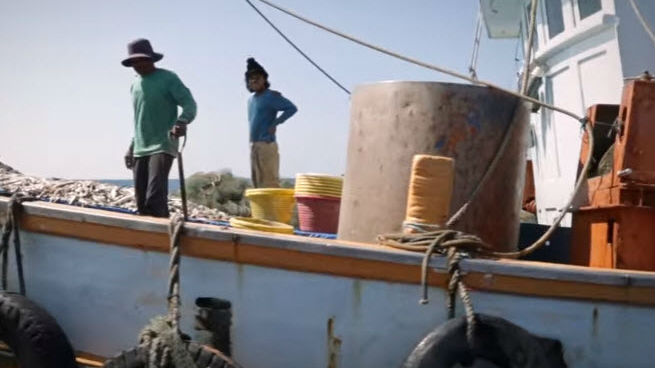The International Labour Organization (ILO) adopted a resolution aimed at boosting protection for migrant fishers last week.
The resolution addresses matters such as close cooperation between U.N. agencies for a rapid implementation of international instruments, including a formal campaign to increase ratification of Convention 188, the Work in Fishing Convention, 2007. It also calls for the development of guidelines on labor recruitment and calls for member states to cooperate on criminal cases and abuses against migrant fishers.
The Work in Fishing Convention sets minimum requirements for work on board including hours of rest, food, minimum age and repatriation and has been ratified by 10 States (Angola, Argentina, Bosnia and Herzegovina, Congo, Estonia, France, Lithuania, Morocco, Norway and South Africa). It will enter into force in November 2017. The Convention requires States to establish an effective system for the inspection of conditions on board vessels flying the flag of a ratifying State. It also contains provisions for inspection of foreign vessels and a “no more favorable treatment” provision which would help reveal and address problems on, for example, distant-water vessels.
Migrant workers can be particularly vulnerable to situations including: deception during recruitment; discrimination in employment; restrictions on freedom of association and collective bargaining; forced labor as well as to occupational safety and health concerns. Once on board, fishers may find the conditions of their employment contract not respected or their contracts substituted. They also face considerable challenges in accessing social protection, including health care and social security, due to their nationality, migration status, length of employment and residence and loss of entitlements in their home country.
Migrant workers may be forced to work excessive hours. Some migrant fishers have reportedly been subject to workdays of up to 20 hours, while other reports indicate that fishers are force fed drugs such as methamphetamine to make them work longer hours or through the night. Due to the presence of language barriers, migrant fishers are more likely to experience violence at work. Fishers who are unable to fully understand instructions and perform tasks adequately may be subject to violence and abuse by senior crew as a result. Some captains use violence to intimidate and foster compliance among migrant fishers and prevent them from trying to escape the vessel. In extreme cases, fishers have reportedly been murdered and their bodies disposed of at sea.
Fishers often fall through gaps in the laws, regulations and measures that countries have established to protect workers. Sometimes they are considered by law to be seafarers and sometimes not. As vessels are often at sea for long periods, the monitoring of the working conditions of fishers and the enforcement of legislation can be challenging. Different aspects of living and working conditions may come under the jurisdiction of different government ministries and agencies, and inspections may not be coordinated.
In Europe, fishing vessel owners employ relatively high proportions of non-local crew from other E.U. Member States and from non-E.U. countries. The European Commission reports that this is most prevalent in regions such as Greece, where large trawlers are crewed principally by Egyptians; the United Kingdom and Ireland, where Filipino and other migrant crew fill labor shortages; and southern Italy, where a relevant share of those employed are Tunisians.
The ILO resolution has been welcomed by the International Transport Workers Federation (ITF). Johnny Hansen, chair of the ITF fisheries’ section, said: “Today we moved a step closer to ensuring that migrant workers are better protected and considered equal to all other fishers. It would be unrealistic to claim that what was agreed today is the solution to the problems they face. The issue of abuses is a global one, as we have well documented at the meeting – including the difficult situation of migrant workers in Ireland. But we consider the adoption of the resolution is a first step on the road toward improving migrant fishers’ living and working conditions.”
He continued: “We are pleased that the employers have fully committed to working as reliable social partners, sharing most of the contributions tabled at the meeting. Together with the ILO, and with the commitment of governments at the meeting – including the positive intervention of the Thai government, which reported on the steps they are taking to address the situation of migrant workers that has been documented and denounced by the ITF, among others – we are confident that the future may be brighter for migrant fishers. It is now time for action.”
By MarEx 2017-09-23



















